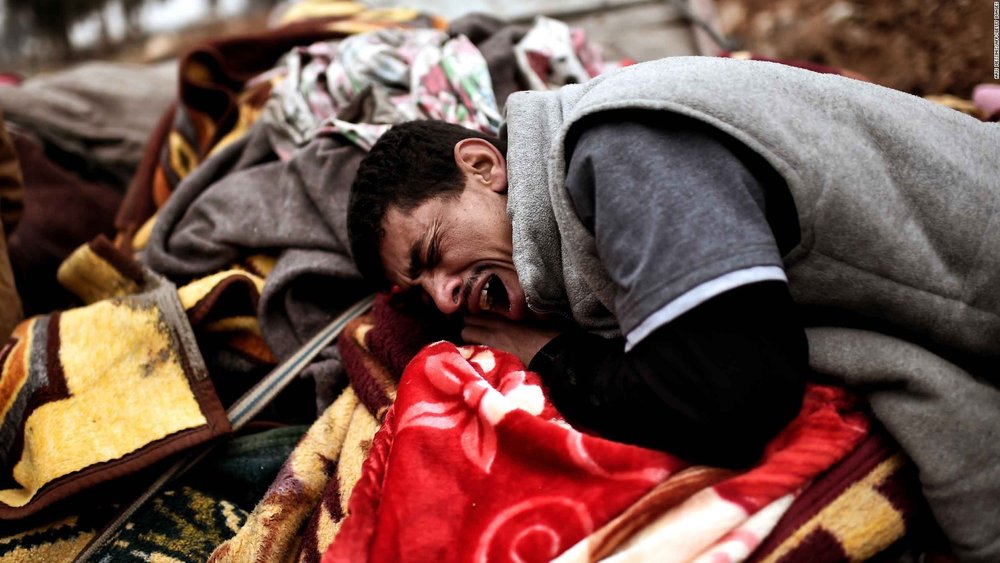Mosul civilian casualty disaster is sign of an even bigger problem

The United States is acknowledging a role in an air attack in Mosul, Iraq, where the civilian death toll appears to exceed 140 people.
Gen. Joseph Votel, the top U.S. commander in the Middle East, has vowed to investigate, and according to CNN's reporting, the military review will now also include U.S. airstrikes that took place over several days in Iraq, roughly between March 16 and March 23.
The injured and the families of the dead are suffering the terrible immediate consequences. But there will also be wider repercussions. Mosul is only the latest example of a disproportionate use of force by the United States that is likely to do more harm than good.
Another occurred in January, in Ghayil, Yemen, just days after Donald Trump became President. The killings in Mosul and Ghayil occurred in protracted civil wars, wars with no end in sight and for which the United States has no exit strategy.
These wars are part of a failed U.S. military strategy spanning three presidencies. Successful military strategy is carefully calibrated to accomplishing the military objective. In the case of Iraq, the objective is removing the Islamic State (ISIL). Success requires understanding why the Islamic State came to control almost one-third of Iraq in the first place. It requires a complete plan incorporating diplomatic and political measures for consolidating military gains.
The Mosul investigation will undoubtedly consider two principles of the law of war: civilian distinction and proportionality. These mandate that civilians and civilian property may never be intentionally targeted.
If, however, fighters or military objects are targeted and civilians are killed or property destroyed unintentionally, no legal violation has occurred so long as the deaths or destruction are not disproportionate to the value of the military objective.
The investigation needs to consider other principles, including the legal basis for resort to war in the first place and the principle of necessity, which holds that any use of force must be a last resort and have a high likelihood of success. On the battlefield, necessity permits killing or destruction only if it is likely to accomplish the military objective.
The UN Charter restricts the use of force to self-defense against a state responsible for an armed attack or action taken with UN Security Council authorization. Consent or invitation by a government to suppress rebellion may also form a lawful basis.
The Bush and Obama administrations floated some loose proposals about why our current wars and targeted killing operations meet these requirements. But their claims fall far short — a fact understood by victims all too well.
President Obama went farther than President Bush, tinkering with the actual law to appear to be law abiding. His lawyers produced memos on self-defense that inverted the meaning of words to give a veneer of legality.
They came up with a homemade set of rules for using force in non-armed conflict situations, away from “hot battlefields” -- the Presidential Policy Guidelines or PPG. These required that officials only approve the use of military measures if there was near-certainty that civilians would not be killed when fighting in places other than Afghanistan and Iraq.
The PPG obscured what the law of war is. The actual law requires the U.S. to stop using force in Libya and Somalia, where we lack a basis in self-defense, and to stop in Syria and Yemen, where the requisite consent for the use of American military power is lacking.
It means returning to the zero civilian casualty policy in Afghanistan and Iraq and implementing a longer term, non-military strategy for restoring human rights and good governance in both places.
Unlawful policies that got a pass under Obama and Bush are being exposed for what they always were in the harsh glare of Trump rhetoric and the dramatic scenes of botched implementation. From migrant rights to the law of war, the courts, lawyers, and citizens are waking up to their obligations to defend the rule of law at home and abroad. That includes a duty to demand compliance by the commander in chief. It means no more Mosuls.
(Source: CNN)
Leave a Comment